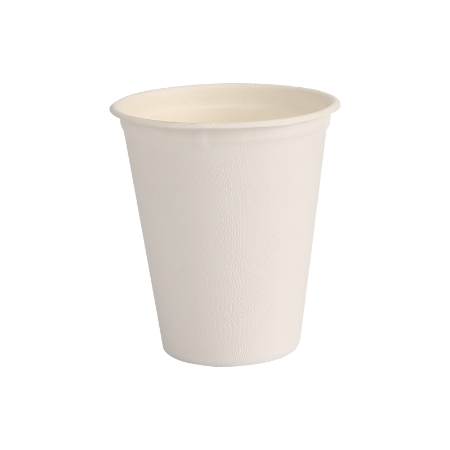Bagasse cups are a great alternative to plastic cups. They are also a natural and renewable material. If disposed of properly, bagasse will decompose within four months.Bagasse is a by-product of the sugarcane industry. After the extraction of the juice, the stalks are crushed and the fibrous matter is left behind. It can be composted or recycled. The pulp that is created from this process is packaged with a recyclable polyolefin thermoplastic.
While a lot of the bagasse is burned, some of it can be used in order to create high-strength paper. These products are used for bowls, plates, and cups. In 2015, the Paramonga sugar mill produced 90,000 metric tonnes of paper.

Sugarcane is an excellent source of renewable energy. It can absorb 10 times more greenhouse gases than wheat. And it converts up to 1% of the sun's energy into biomass.One way that sugarcane contributes to the environment is by converting the carbon dioxide in the air into biogas. When it decomposes, it naturally forms organic fertilizer.
Another reason to use sugarcane for your coffee cup is that it is completely biodegradable. This makes it a natural replacement for Styrofoam. Plus, it's durable and can be microwaved for several minutes.Aside from coffee cups, there are also several varieties of bagasse containers. Some of these are perfect for take-out food. These containers are easy to wash and are also resistant to stains and damage.These containers are ideal for street food vendors and festivals. They are also great for storing condiments and dressings.
Another reason to use sugarcane for your coffee cup is that it is completely biodegradable. This makes it a natural replacement for Styrofoam. Plus, it's durable and can be microwaved for several minutes.Aside from coffee cups, there are also several varieties of bagasse containers. Some of these are perfect for take-out food. These containers are easy to wash and are also resistant to stains and damage.These containers are ideal for street food vendors and festivals. They are also great for storing condiments and dressings.
 Email: Maggie.ding@hl-jdb.com
Email: Maggie.ding@hl-jdb.com  Tel: +86-576-88175158;+86-576-88175158
Tel: +86-576-88175158;+86-576-88175158 
 中文简体
中文简体

.png?imageView2/2/format/jp2)



.png?imageView2/2/format/jp2)
.png?imageView2/2/format/jp2)
.png?imageView2/2/format/jp2)
.png?imageView2/2/format/jp2)
.png?imageView2/2/format/jp2)
.png?imageView2/2/format/jp2)
.png?imageView2/2/format/jp2)
.png?imageView2/2/format/jp2)
